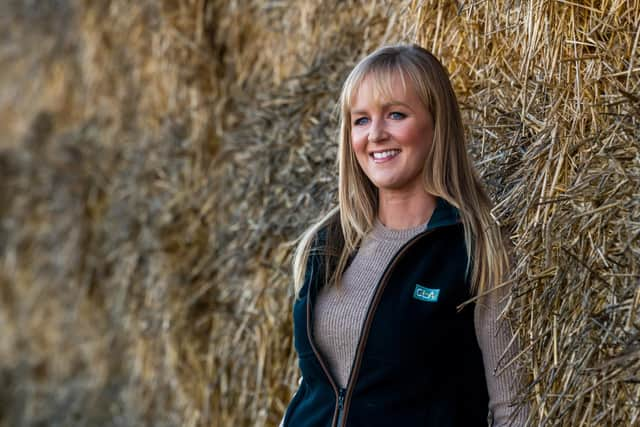The Government has shown little interest in removing barriers to economic growth in the countryside - Lucinda Douglas
Following the ‘Levelling Up’ White Paper, the Country Land and Business Association (CLA) supported an All-Party Parliamentary Group (APPG) report that set out an economic blueprint to revitalise the rural economy, which is 19 per cent less productive than the national average. Reducing this gap could add up to £43bn to the national economy.
The inquiry took evidence from over 50 industry bodies, academics, business leaders and campaign groups, and should be seen as a blueprint for economic growth in the countryside. It makes 27 recommendations that are low cost and easy to implement.
Advertisement
Hide AdAdvertisement
Hide AdGiven the current ‘cost of living’ crisis in the context of 40-year high inflation, I am sure that the Exchequer would welcome any additional tax revenue.


The report was supported by the CLA’s Rural Powerhouse campaign which identified that the barriers to improving productivity fall into five main areas: lack of infrastructure, poor access to skills and training, an outdated planning system, an overly complex tax system and a lack of profitability in the farming sector without direct government support.
The report concluded that no government in recent memory has had a program to unlock the economic and social potential of the countryside. Decades of neglect have left the countryside in a state of stagnation.
Since this time last year, the country has seen three Prime Ministers and four Chancellors in government. The ongoing political musical chairs distracts from the challenges in hand, to sort out, not only our national, but also our rural economy.
Advertisement
Hide AdAdvertisement
Hide AdWhen recently setting out the long term vision for the UK economy, the Chancellor, Jeremy Hunt, was right to identify productivity as a major weakness of the UK economy, yet to this date the UK Government has shown precious little interest in removing the barriers to economic growth in the countryside.
Following extensive lobbying by the CLA last year, the Government announced a set of measures designed to boost the rural economy in England, which included £110m of funding to boost economic activity in the countryside.
These measures were included in Defra’s ‘Delivering for Rural England’ report, with a stated commitment to ensure the needs of the rural economy are reflected in the levelling up agenda. This funding will kick-start the green shoots of recovery for the rural economy. Whilst this announcement, made in the Government’s ‘Delivering for Rural England’ report, is a good start, it does not fully address the challenges faced by rural businesses. Rural business owners are working hard to succeed, determined to create prosperity across our communities. But we need this report to deliver genuine planning reform, full connectivity and a cross-departmental policy framework from the government that reflects the sheer potential of the rural economy. Then there was the recent re-organisation of Whitehall into new departments, the result of which only sees further fragmentation without a laser-like focus on the issues of national interest.
It isn’t clear what will be achieved by this re-shuffle. The real problem is that the government does not have a robust and ambitious plan for the UK economy – and that isn’t going to be addressed by putting different portfolios into different departments.
Advertisement
Hide AdAdvertisement
Hide AdThe lack of rural focus from the government is largely down to the fact that Defra alone does not have the policy levers necessary to make a meaningful difference.
The Levelling Up agenda needs to include a cross-departmental effort to deliver policies that will create economic growth in rural areas. A more joined-up approach is required to avoid rural policymaking to fall between the cracks of Whitehall departments.
Rural businesses want to play their part in growing the economy, but they are being held back by a lack of government ambition. Actions, and not words, is what counts right now.
Representing a largely rural constituency, Prime Minister Rishi Sunak should commit himself to developing a robust and ambitious plan for the countryside. This requires planning reform and tax simplification to encourage entrepreneurship, but also investment in skills and innovation to future proof our rural businesses and workforce.
Advertisement
Hide AdAdvertisement
Hide AdGovernment aside, the CLA is encouraging Local Enterprise Partnerships and local authorities to help find solutions to the pressing realities experienced in rural areas. Government’s ‘levelling up’ agenda includes plans on the creation of ‘investment zones’, but these are very much fashioned to benefit our urban economy. More can be done to consider and incorporate rural areas into their growth aspirations.
The UK not only deserves, but needs, a coherent and workable strategy to unlock the vast potential of our rural economy.
Lucinda Douglas is CLA Director North.